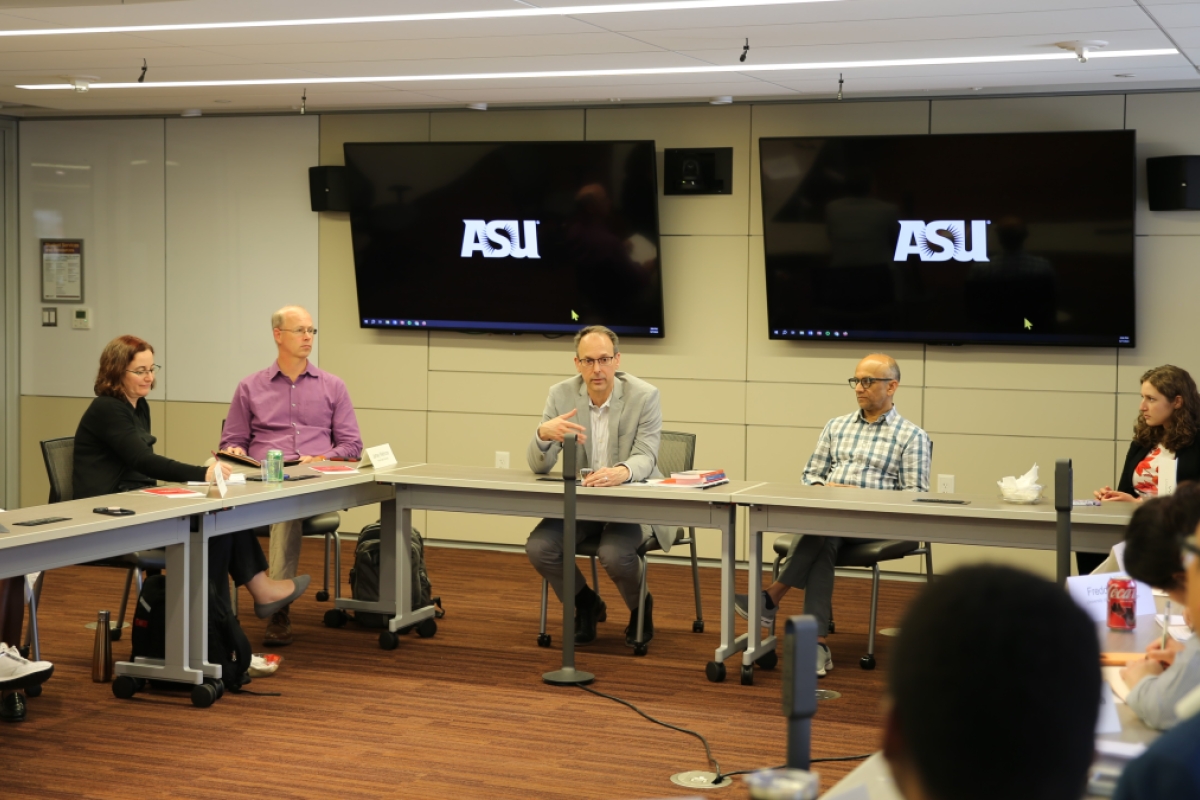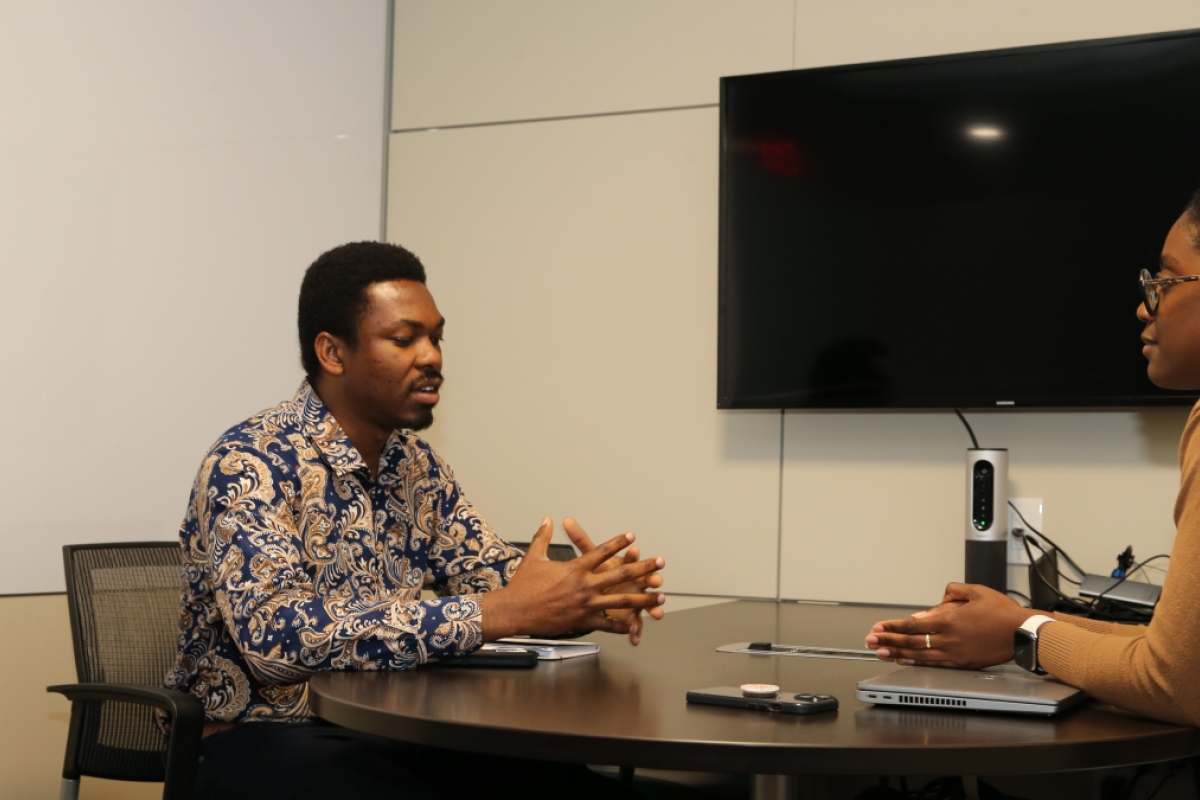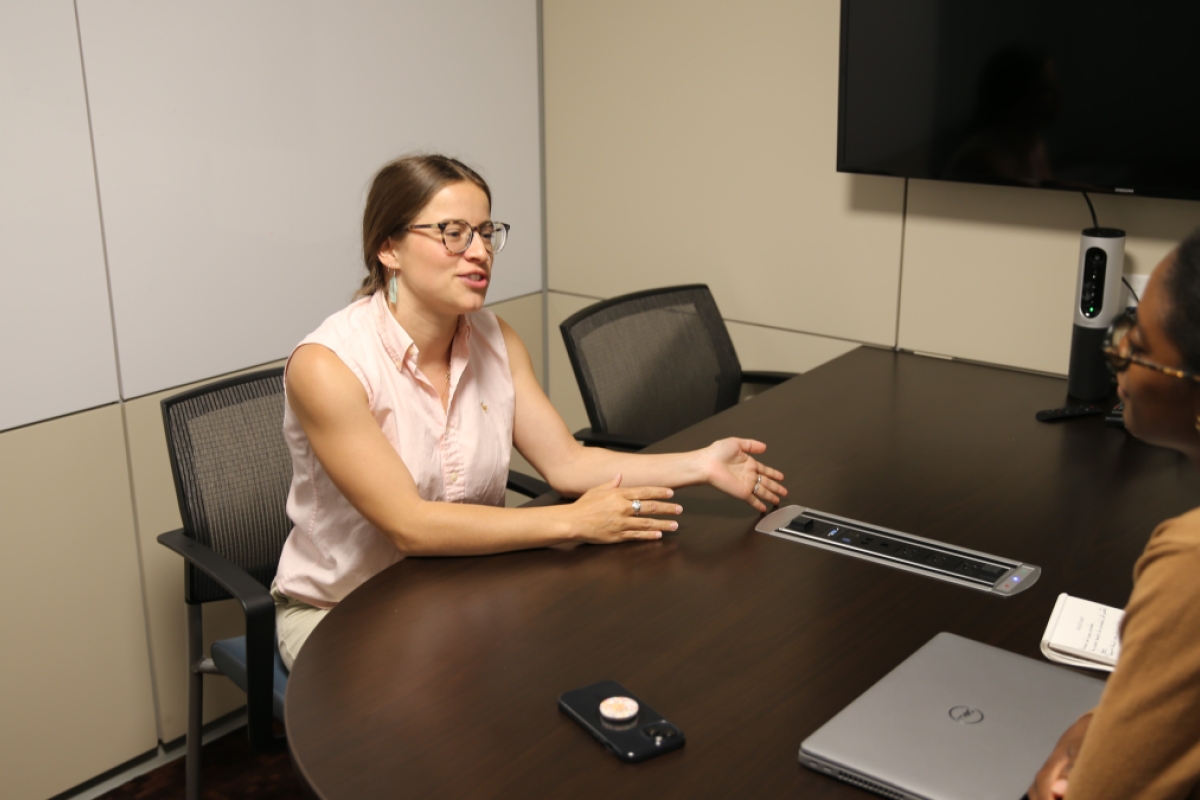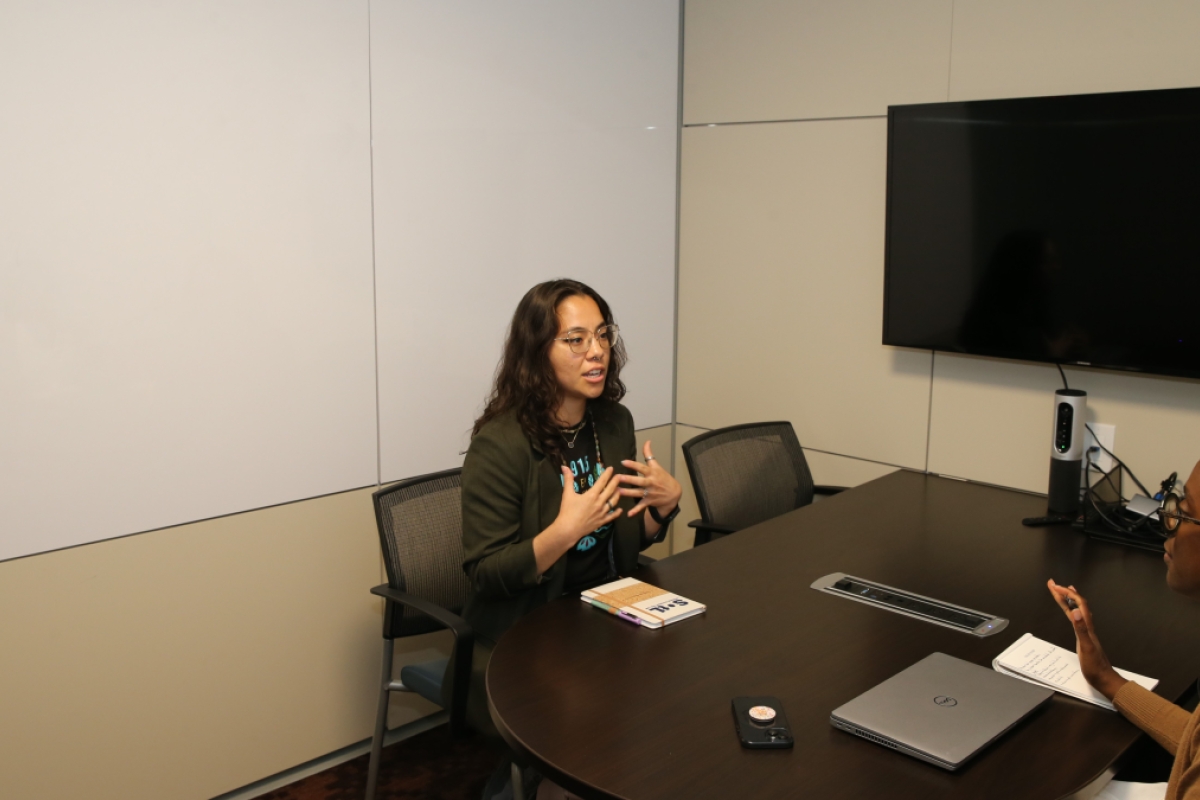ASU program gives graduate students firsthand look at science policy in nation's capital
For international students like Jide Olugbade, going to Washington, D.C., was a dream come true: He could get an insider’s view of the city's movers and shakers and everything in between.
Thanks to the weeklong Science Outside the Lab program hosted by Arizona State University, Olugbade and his colleagues in the policy immersion cohort got a firsthand look into how policy is shaped in the nation’s capital. Now he hopes to complete his dissertation and apply his multidisciplinary interests and skills in tech ethics and artificial intelligence research in public policy.
"It's helping me understand, firstly, the kind of job I'd like to pursue in the future by engaging with people in different positions," said Olugbade, a PhD candidate at Georgia Tech University. “The program either reaffirms or challenges the kind of things you've read, or you've heard somewhere, and you think, ‘Oh, maybe it's not so true,’ but when you hear it from people who are really in the system — it validates that.”
Science Outside the Lab is run by ASU’s Center for Engagement and Training in Science and Society, or CENTSS, and explores the relationship between science, policy and societal outcomes. Each summer, the program offers different tracks for participants, focusing on areas ranging from energy to engineering and natural sciences and policy immersion.
Since the program’s establishment in 2002, students from diverse graduate programs nationwide have gathered annually in Washington to experience many facets of science and politics. Those interested in careers in science policy have also found the program to be an excellent opportunity to learn about important career fellowships and meet current science policy professionals.
Learning beyond the classroom
This year, over the course of the week, participants met with more than 50 distinguished professionals, including funders, regulators, lobbyists, and administrative professionals — some of whom are Science Outside the Lab alumni — who provided invaluable insights that helped students envision themselves in similar roles.
“We have a nation of PhD students in science and engineering that want to do more than just science and engineering,” said Jameson Wetmore, program lead for Science Outside the Lab and an associate professor in the School for the Future of Innovation in Society at Arizona State University.
Participants in the policy immersion cohort traveled to various off-site meetings in the corridors of power in Washington, where they networked and engaged in peer-to-peer dialogue with experts. On a typical day, participants could find themselves spending the day at the White House complex, at more than one of the Capitol office buildings or inside cabinet agency headquarters.
There were meetups with the natural resources and environment team at the Government Accountability Office, a meeting in the historic Eisenhower Executive Office Building to discuss mitigating the threat of biological agents with members of the National Security Council, a field trip to speak with a curator at the Smithsonian National Air and Space Museum and a visit to NASA headquarters, where participants met a senior policy analyst who was the research study lead for the agency’s Artemis and Moon to Mars missions.
“This program is a crash course in science policy. It helps participants understand the complexities of the world and how to begin to make change happen. They all come in wondering, ‘What else can I do with my degree and with the knowledge I have?’ and they all leave with more than one answer,” Jameson said.
-

ASU’s Consortium for Science, Policy and Outcomes Director Arthur Daemmrich and Associate Director Mahmud Farooque field questions from graduate and postdoctoral students.
Photo courtesy Hager Sharp
-

Jide Olugbade, a Georgia Tech graduate student, shares his thoughts on ASU’s Science Outside the Lab workshop.
Photo courtesy Hager Sharp
-

Emma-Rose Newmeyer, a Northwestern graduate student, details her interest in ASU’s Science Outside the Lab workshop.
Photo courtesy of Hager Sharp
-

Northwestern graduate student Kayna Mendoza explains why she joined ASU’s Science Outside the Lab workshop.
Photo courtesy of Hager Sharp
A launchpad for nonlinear success
Most students have used the program as a springboard to the next steps in their careers, and alumni believe that any graduate student with an interest in policy and societal change can benefit from the experience.
For Emma-Rose Newmeyer, a chemistry PhD candidate from Northwestern University in her third year studying the catalysis of converting greenhouse gases, said the program is helping her make meaningful professional connections with others doing similar work and looking to hire.
“A big part is that, (for) a lot of us who enter policy, there's not a linear path towards having some of these positions,” Newmeyer said. “It helps us understand the landscape before committing to this; before taking this unorthodox path in — and then out of — academia, and back into the real world to be able to implement change.”
As a dual citizen, Newmeyer feels more confident in working in more international agencies such as the United Nations.
“I think to know if you want to do this type of work, you have to see it, and I just wish there were more of these types of programs,” Newmeyer said.
Contributing for the greater good
Another policy immersion program participant, Kayna Lee Mendoza Trujillo, is pursuing a PhD in materials engineering from Northwestern University. Trujillo emphasized that the program was her first-ever introduction into science diplomacy, and she found it a haven for her personal and professional development.
“It’s very comforting as a first-generation student who didn't have access to resources,” Mendoza said. “To lean on the experience of the Science Outside the Lab leadership has helped my personal and professional development but also culturally — that cultural significance of science and the work we do.”
Mendoza is currently working on nanoscale magnetism for the miniaturization of semiconductor chips for energy. She also sits on a nonprofit board that focuses on humanitarian technologies, where she helps fund projects for local communities implementing sustainable technological solutions.
“I want to contribute by putting what the science is saying into practical and political practice for the greater good,” Mendoza said. “I'm bringing my volunteering into a more tangible aspect, and (by) integrating these opportunities, I can be as well rounded as possible.”
Legal Disclaimer:
EIN Presswire provides this news content "as is" without warranty of any kind. We do not accept any responsibility or liability for the accuracy, content, images, videos, licenses, completeness, legality, or reliability of the information contained in this article. If you have any complaints or copyright issues related to this article, kindly contact the author above.
